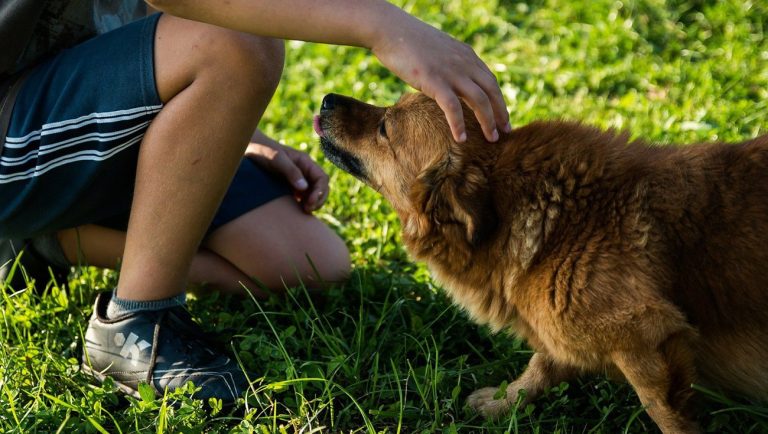Owning a dog is a deeply rewarding experience for many, offering companionship, unconditional love, and a unique bond. However, it’s crucial to understand both the advantages and disadvantages before welcoming a furry friend into your life. This comprehensive guide will explore the multifaceted realities of dog ownership, helping you make an informed decision.
The Unconditional Love: Benefits of Dog Ownership
Owning a dog offers a multitude of benefits that extend far beyond simple companionship. The positive impacts on mental and physical well-being are significant, making dog ownership a worthwhile investment for many.
Enhanced Mental Well-being: A Furry Friend for a Happier You
Dogs provide unparalleled emotional support. Watching your dog’s playful antics and experiencing their unconditional love can significantly boost your mood and reduce feelings of loneliness. Scientific studies show a strong correlation between dog ownership and reduced symptoms of anxiety and depression. The simple act of petting a dog releases endorphins, promoting relaxation and reducing stress levels. This translates to improved overall mental health and a greater sense of well-being.
Combating Loneliness and Isolation: A Loyal Companion Always There
In today’s increasingly connected yet often isolating world, many individuals experience loneliness. A dog offers constant companionship, providing a comforting presence that combats feelings of isolation and promotes social interaction. Dog parks and pet-friendly events offer opportunities to connect with other dog owners, expanding your social circle and enriching your life.
Stress Reduction and Improved Productivity: A Paw-sitive Impact on Your Work Life
The stress-relieving benefits of dog ownership are well-documented. Studies have shown that interacting with dogs can lower cortisol levels (the stress hormone), leading to reduced anxiety and improved focus. This can translate to increased productivity at work and a greater ability to manage daily challenges. The simple act of taking your dog for a walk can provide a much-needed break from stressful situations.
Fostering Responsibility and Empathy in Children: A Lesson in Unconditional Love
For families with children, a dog can be a valuable tool for teaching responsibility, empathy, and compassion. Caring for a pet instills a sense of duty and encourages children to develop routines and habits centered around the needs of another being. This fosters emotional maturity and strengthens family bonds. The responsibility of caring for a dog can also help children develop better social skills through interactions with other dog owners.
Enhanced Home Security: A Loyal Guardian Watching Over You
Many dog breeds are naturally protective and possess a strong guarding instinct. This can provide a sense of security and deter potential intruders. While a dog isn’t a replacement for a robust security system, their presence can serve as a significant deterrent and offer peace of mind. Their loyalty and protective nature make them excellent companions and watchful guardians.
Boosting Physical Activity and Health: A Motivational Walking Buddy
Leading a sedentary lifestyle can lead to health issues. Dog ownership encourages regular physical activity, as daily walks and playtime are essential for a dog’s well-being. This translates to improved cardiovascular health, weight management, and increased energy levels for the owner. Instead of dreading exercise, you’ll find yourself looking forward to your daily adventures with your canine companion.
The Challenges of Dog Ownership: A Realistic Perspective
While the benefits are numerous, it’s important to acknowledge the challenges and responsibilities associated with dog ownership. Understanding these aspects beforehand is crucial for making an informed decision.
Potential Health Risks: Zoonotic Diseases and Parasites
Dogs can carry zoonotic diseases, which are transmittable to humans. While modern veterinary medicine has significantly reduced the risks associated with diseases like rabies, vigilance is still essential. Regular vaccinations and preventative care are crucial to mitigate these risks. Parasites like fleas and ticks are also a potential concern, requiring consistent preventative measures. Pregnant women and individuals with compromised immune systems need to take extra precautions.
Training and Behavioral Challenges: A Commitment to Consistent Training
Training a dog requires time, patience, and consistency. Without proper training, behavioral problems can arise, such as aggression, excessive barking, and destructive chewing. Some breeds are more prone to specific behavioral issues than others, so careful research is essential before choosing a dog. Inconsistent training can lead to frustration for both owner and pet.
Financial Responsibilities: The Costs of Canine Care
The costs associated with dog ownership can be substantial. Regular veterinary visits, vaccinations, food, grooming, and potential emergency treatments can add up significantly. Unexpected veterinary expenses can be especially burdensome, so it’s essential to factor these costs into your budget before adopting a dog.
Lifestyle Adjustments: The Commitment to a Furry Friend
Dog ownership requires significant lifestyle adjustments. Travel plans need to be adapted, daily routines modified, and personal time allocated to caring for your pet. Finding pet-friendly accommodations and making arrangements for your dog’s care during absences are essential considerations. This commitment to your pet’s well-being necessitates thoughtful planning and adjustments to your lifestyle.
Conclusion
The decision to own a dog is a significant one, demanding careful consideration of the associated joys and responsibilities. While the companionship, unconditional love, and health benefits are undeniable, understanding the potential challenges regarding health, finances, and lifestyle adjustments is crucial. By weighing these factors carefully, prospective dog owners can make an informed decision that aligns with their lifestyle and capabilities, ensuring a fulfilling and enriching experience for both themselves and their canine companion.

